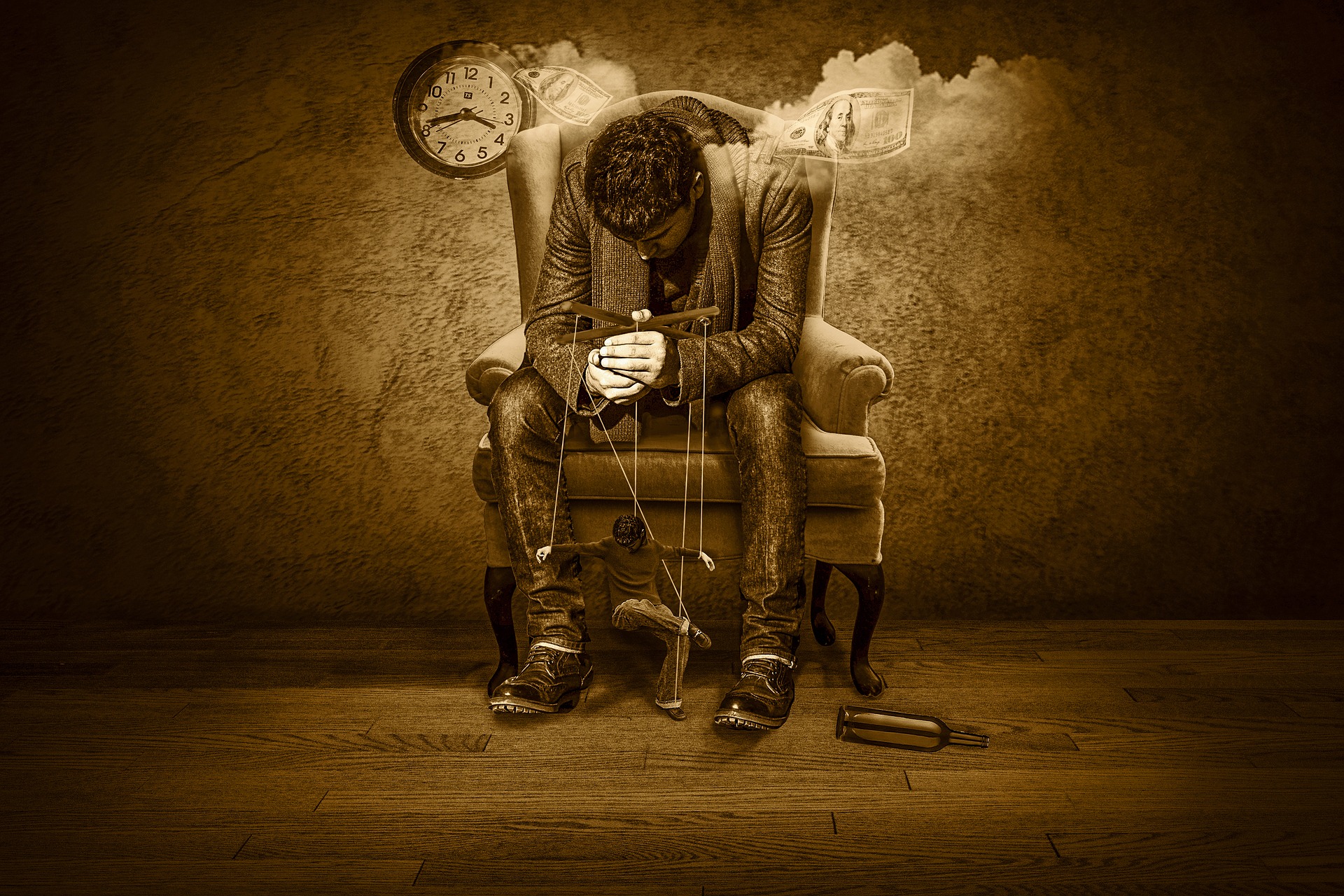 Submitted by Jolley on
Submitted by Jolley on

Money is a touchy subject. That’s because most of us, to a certain degree, associate a lot of our self-worth and identity with our job and how much money we make. It is, quite literally, a market valuation of our skills and competence as a person, and therefore we all get a little bit testy and scooch around uncomfortably in our chairs whenever money is brought up.
But money is merely an arbitrary store of value. It is not value itself.
There are many stores of value in life. Time is a form of value. Knowledge is a form of value. Happiness and other positive emotions are a form of value. Money is often just the vehicle of interchanging these various forms of value with one another.
Money is not the cause of wealth in one’s life. It is the effect. Similarly, when people assume that money is the cause of their problems, they are actually mistaken. Money is usually the most noticeable effect of their problems.
Money is fluid. Its value only becomes realized when it’s put into motion. Therefore, money is a reflection of the owner’s values and intentions.
The Things You Own End Up Owning You
Most people mistake being rich for owning lots of stuff or achieving some sort of fame or status. I could max out my credit card buying VIP tables in Vegas all weekend and take selfies with Ivanka Trump, but that doesn’t make me rich. On the contrary, it would make me kind of a douchebag.
There is that old saying from Fight Club, “The things you own end up owning you.” Materialism, by and large, is a psychological trap. No matter how much you own, how much you buy, how much you earn, the disease of more never goes away. Meanwhile, you’re working longer hours, taking bigger risks, foregoing more and more parts of your life.
Money is inherently neutral. It’s merely a vessel for the exchange of experience between two people. You make your money by creating experiences for others. You then give your money to others to receive experiences in return.
Even when you buy some material good, like a sports car or a diamond necklace, you’re not just buying the physical goods, you’re buying the experience of driving that car or wearing that necklace. You’re buying the experience of power, speed, or social status that’s associated with it. You’re buying that ornament to your identity, that knowledge of what owning and using it feels like and whether it makes you happy or not.
What are You Really Buying?
Arguably most of the value of any purchase is not monetary.
When you buy food, you are, in a sense, buying away the experience of hunger. You’re buying your own temporary health and happiness. When you buy a trip with your family, you are buying the opportunity to experience something new together and strengthen your relationships with one another. When you buy a new suit for work, you aren’t just buying the fabric or the brand, you are buying the social signals that you invest in yourself, that you take yourself seriously and can be relied upon by others.
It’s not about the stuff. The stuff is merely there to shuttle you into some form of experience. Everything you spend money on is simply experience.
Experience Cycles
Because money is an exchange of experiences, money often results in experience cycles: we give up one (negative) experience to earn money that then purchases the opposite (positive) experience. Once the money runs out, we’re forced back to the negative experience and the cycle starts again.
Stress Cycles–Some people earn money through a great deal of stress. They work a high-pressure job or in a role where they are constantly criticized or threatened in some way. They then spend their money primarily on stress-relief to compensate for the rigor their job creates. These people end up in a constant cycle of stress-generation and stress-relief, while failing to actually build much wealth.
Ego Cycles–Some people work in environments where they feel powerless, insignificant or useless. These people then take out their insecurity by spending their money on superficial status symbols (see: the thirty thousand dollar millionaire). They earn their money through insecurity and then spend their money on quelling their insecurities, thus never actually building wealth.
Pain Cycles–Other people actually hurt themselves to make a living. It may be physically (professional wrestling, sword swallower) or it may be emotionally/psychologically (sex work, demeaning jobs, abusive bosses or co-workers). These people then spend their money on pain relief—alcohol, drugs, and other diversions.
True wealth occurs when the way we spend our money is not simply compensating for how we earn it. Wealth occurs when the way we earn money and the way we spend money are aligned with one another—when our money is earned through a positive experience and spent on other positive experiences.
Mark Manson
http://new-paradigm.ws/real-value-money/
- 1238 reads